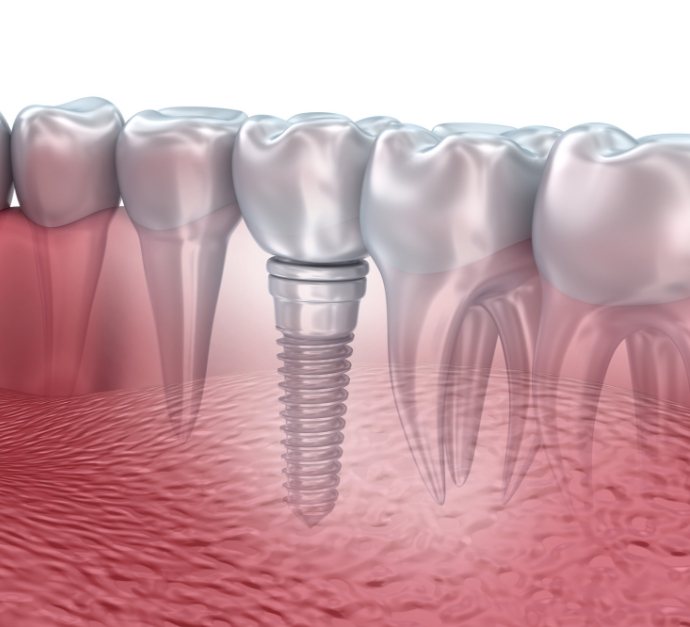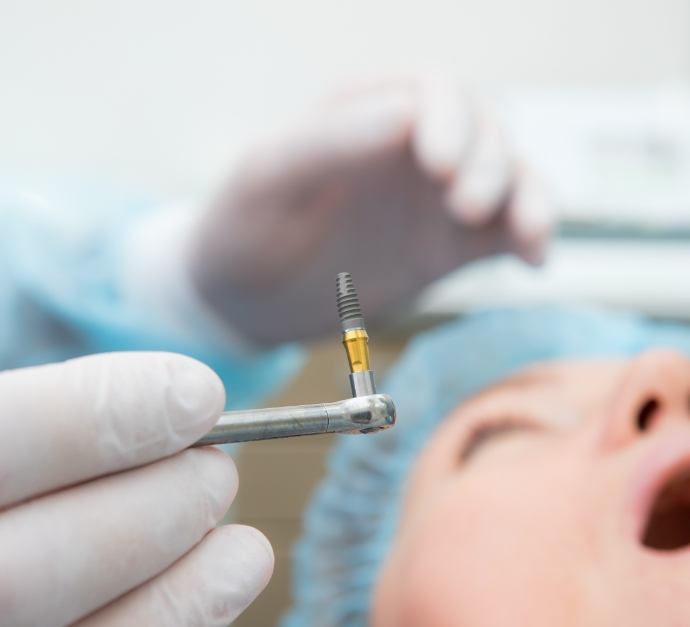Dental Implant Failure & Salvage Richardson
Effective Solutions for Failing Dental Implants

Dental implant failure in Richardson can happen, but it’s incredibly rare, especially if you maintain good dental hygiene and avoid bad habits like smoking. Studies have shown that with proper care, implants have a 98% success rate after five years of placement, and they’re able to last for up to 35 years. However, if you are experiencing dental implant failure, acting quickly and recognizing the early signs can allow you to salvage your smile. Read below to learn more and call our oral surgery office if you notice any symptoms.
Why Do Dental Implants Fail?

There are a few different habits and factors that could cause dental implants to fail, which Dr. Ahn will discuss with you in great detail during your initial treatment consultation. One of the most common causes of this is peri-implantitis, which is an infection that develops in the gums supporting the dental implant. Just like gum disease, peri-implantitis can weaken the tissue and cause it to recess, moving away from the implants and compromising their stability. Just like gum disease, peri-implantitis is caused by poor dental hygiene.
Other complications that can increase your chances of experiencing dental implant failure include traumatic oral injuries as well as underlying medical conditions and taking certain prescriptions. However, your oral surgery dentist should discuss your medical and oral health histories in detail with you at your consultation to confirm that you’re a good candidate for the treatment.
Symptoms of a Failed Dental Implant

Keep an eye out for the following signs of failing dental implants and call us immediately:
- Pain, soreness, or tenderness near your dental implant.
- Swelling or redness of the gums around the implant.
- Bleeding gums around the implant.
- Pain while chewing or biting down.
- Shifting or loose dental implant or restoration.
- Chronic bad breath or a bad taste in the mouth.
- Gum recession around the implant, making it more visible.
How Dental Implant Salvage Works

The key to successful dental implant salvage is early intervention. Dr. Ahn will thoroughly examine your mouth to determine the cause of your symptoms during an examination. In more minor situations, he may recommend you for a thorough, deep cleaning with your general dentist or other infection treatment methods, like antibiotic therapy. In situations where the infection has progressed, more extensive intervention like a bone graft, gum graft, or other procedure may be necessary. Our top priority is to salvage your dental implants and restoration so you can continue enjoying a complete smile.
Dental Implants Oral Surgery Sedation Dentistry Tooth Extractions View Our Services
